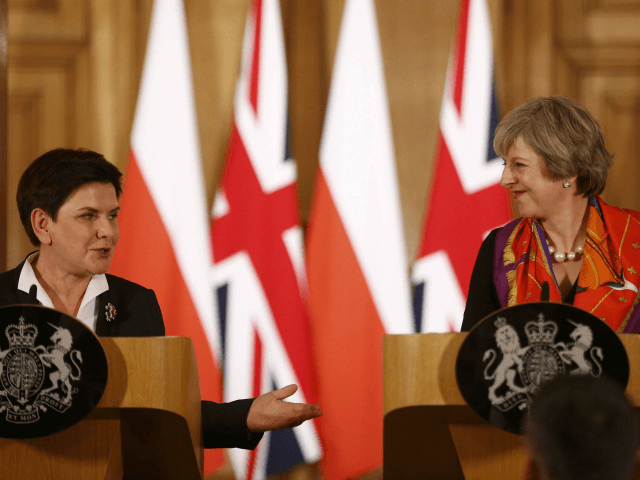The chairman of Poland’s ruling Law and Justice Party (PiS) wishes to forge an alliance of European Union (EU) member states opposed to taking punitive action against the United Kingdom in the upcoming Brexit negotiations.
In an interview with Peter Foster, The Daily Telegraph‘s Europe editor, Jarosław Kaczyński echoed the sentiments expressed by Prime Minister Beata Szydło in November 2016, when she wrote that “Poland stands ready to help its old friend Britain reach the best possible Brexit deal”.
Kaczyński, a former prime minister and twin brother to the late President Lech Kaczyński, is widely regarded as the power behind the thrones occupied by Szydło and President Andrzej Duda.
“Officially everyone loves the United Kingdom and doesn’t want to give them a hard time,” the veteran conservative told Foster. “But some people really want to make it as tough as possible for the United Kingdom.
“Meanwhile some of us would like to sustain a kind of partnership with the United Kingdom. Not within Europe – since you do not wish to remain inside – but very close and friendly relations from outside the European Union. Poland belongs to the second category of voices.”
Kaczyński’s party is a patriotic and socially conservative party, opposed to mass immigration, and committed to rooting out the surviving elements of the former Communist regime, to the great displeasure of the dominant powers in Brussels.
“On the one hand we need to stand up for our citizens, and this is what we will do,” he says. “But on the other hand, our ambition would be to create such conditions here to attract migrants back to Poland. If this policy is successful, of course it won’t happen overnight, but in the not too distant future this problem should come to a solution by itself.”
Kaczyński sees Brexit as an opportunity for the bloc to change course, becoming a free trade area where sovereign nation-states freely co-operate, rather than a bureaucratic federation.
“This would, of course, imply that much of the powers now invested in the Brussels-based bureaucracy would be restored to member-states,” he told The Telegraph. “It would bring us back close to the origin of the European Union, back to the European Economic Community (EEC), with rules that would make it difficult for any one nation to gain hegemony over others.”
This was a clear dig at Germany, the driving force behind the EU migrant crisis and chief beneficiary of the single currency. Kaczyński, however, believes that Germany lacks the requisite strength to succeed as a European hegemon, and is “much weaker” than the United Kingdom.
“Without attempting to deny that Germany is a very strong state, they are by far too weak to run this soft hegemony – an American-style hegemony,” he said. “[T]o have such a hegemony you need to be very strong in military terms and have an immense economic advantage over all other partners. Whereas Germany is not strong in military terms – much weaker than that the United Kingdom.”
The EU has responded to the eurosceptic, populist stance of Kaczyński and his party, which has promised to launch a “cultural counter-revolution” in Europe, by launching an unprecedented probe into democracy and the rule of law in the country. But the 67-year-old says his country is ready to see off its “post-colonial” interference.
“[W]hatever is happening in Poland right now, it doesn’t give grounds to say that democracy is at risk,” promising that the Slavic republic will “entirely” ignore any EU censures or sanctions when a deadline to adopt “corrective measures” runs out at the end of February 2017.
Kaczyński also echoed the prediction of Ted Malloch, tipped as President Donald J. Trump’s ambassador to the EU, that the euro could “collapse” within a year and a half.
“From the very inception of the common currency there were some prophets who said it was going to collapse one day”, Kaczyński noted. “That looks realistic now, it looks probable.”
European politicians were incensed when Professor Malloch made the same prediction, calling on the bloc’s leading bureaucrats to block his appointment as U.S. representative in Brussels.

COMMENTS
Please let us know if you're having issues with commenting.